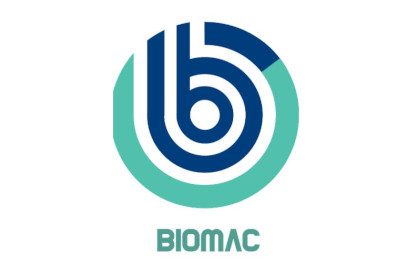European Sustainable BIObased nanoMAterials Community
The BIOMAC project aims to build a sustainable OITB (Open Innovation Test Bed), composed of 17 pilot plants and supported by several technical and non-technical services spread across Europe for the scale-up of new bio-based materials.
The OITB on which the BIOMAC project is based will aim at scaling up existing production processes for bio-based and nanostructured materials. To this end, a network of pilot plants has been set up in eleven European countries that are well positioned in the development of bio-based nanomaterials (Greece, Belgium, Luxembourg, United Kingdom, Germany, Spain, Sweden, Denmark, Poland, Hungary and Portugal).
By fractionating a biomass source (miscanthus waste), bio-based nanocomposites and “builing blocks” will be produced, which will serve as biopolymer precursors for the different strategic sectors developed within BIOMAC – food packaging, construction, automotive and printed electronics – so that the resulting technologies can be validated and scaled up to be price competitive.
The different participating partners will be grouped into 5 internal TeCs (test cases), each of which will address a specific topic (agriculture, automotive, food packaging, construction and printed electronics). These TeCs will then be open to the public.
The BIOMAC OITB has also set up 4 hubs or coordinating centres which will work on the different phases of the project. The 17 pilot plants distributed in the different countries involved in the project serve these hubs. In the case of ITENE, the technology centre will host pilot plants 13 (obtaining nanocellulose and nanocrystals for different applications) and 14 (formulation of bio-based coatings and inks).
A. Pilot Plant Supreme Hub:
This hub includes three groups into which the pilot plants can be classified:
- Group 1: Biomass Fractionation and Nanocomposite Production Cluster: Pilot Plant 1 and Pilot Plant 5.
- Group 2: Intermediate Materials and Nanocomposite Production Cluster: Pilot Plants 2, 4, 8, 9, 10, and 13.
- Group 3: Final Products Production and Formulation Cluster: Pilot Plants 3, 6, 7, 9, 11, 12, 14, 15, 16, and 17.
B. Validation Service Hub:
Service group to analyse, evaluate and characterise the raw materials used, the technologies developed in the project and the products obtained, all of this following an economic and environmental perspective with the aim of preserving the viability of BIOMAC.
C. Market Uptake Hub:
A group of services structured to support business issues, legalisation and data management, all included in an innovation management service. In addition, important issues such as food safety and nanosafety of the products obtained will be considered in order to reduce potential health and environmental risks.
D. Value Chain Assessment Hub:
A group of services dedicated to the assessment of the value chain, with the aim of demonstrating that both the processes and products produced are economically and environmentally sustainable.
ACTIVITIES of the Bio Base Europe Pilot Plant
- Upgrading of Pilot Line: Hydrothermal pre-treatment of biomass
- Pre-treatment of biomass to obtain Fractions of Lignin, Hemicellulose, Cellulose parameter optimization to achieve the desired monomeric characteristics.
- Biomass pretreatment/ fractionation providing lignin and cellulose
- Fraction Lignin: used for the Reactive Extrusion
- Fraction Cellulose: converted to nanocellulose and biochar.
- Upgrading of Pilot Line: Recovery / Separation
- Optimisation in purity and recovery of biomass fractions materials
- Purification of liquid fractions (pure monomer sugar streams such as glucose, xylose, etc. and sugar alcohols (sorbitol, …) from smaller glycols (EG, PG)
- Involvement in Test Cases
- Automotive
- Agricultural applications
- Food Packaging
- Construction
- Support in market uptake of the BIOMAC EcoSystem
PARTNERS
The BIOMAC consortium brings together 33 partners from 12 European countries including 21 technology centres or universities, 3 associations, 4 information management centres and 5 industrial validators or end-users. The consortium brings together leading organisations in the fields of biomass pre-treatment, extraction, processing and manufacturing of chemicals, characterisation, modelling, environmental assessment, standardisation, nanosafety, innovation management and training.
- Aristotle University of Thessaloniki, GR – (Coordinator) – (PP1)
- Lulea Technical University, SE – (PP2)
- Bio Base Europe Pilot Plant, BE – (PP3)
- Luxembourg Institute of Science and Technology, LU – (PP4)
- RISE Processum AB, SE – (PP5)
- Leibniz-Institut für Agrartechnik und Bioökonomie, DE – (PP6)
- University of Edinburgh, UK – (PP7)
- AIMPLAS, ES – (PP8)
- Fraunhofer Institute for Wood Research, DE – (PP9)
- Creative Nano, Cnano, GR – (PP10)
- ITENE, ES – (PP11)
- AIMEN Technology Centre, ES – (PP12)
- Politecnico de Milano, IT – (PP13)
- Technological Institute Denmark, DK – (PP14)
- Nanotypos, GR – (PP15)
- Universidad de Burgos, ES – (PP16)
- ABIS, PL – (PP17)
- IRIS Technology Solutions, ES
- AFOI, GR
- ISQ, PT
- STAM, IT
- European Biomass Industry Association, BE
- Bio Eco Energy Company,
- European Bioplastics, DE
- Idener Research & Development, ES
- Axia Innovation, DK
- EXELISIS IKE, GR
- Universita di Padova, IT
- Diad Group, IT
- Ohmatex, DK
- Eversia Innova, ES
- Acciona Construcción, ES
- Novamont, IT
SUPPORTED by:
This project has received funding from the European Union’s Horizon 2020 research innovation programme under Grant Agreement number: 952941.



 webdesign
webdesign